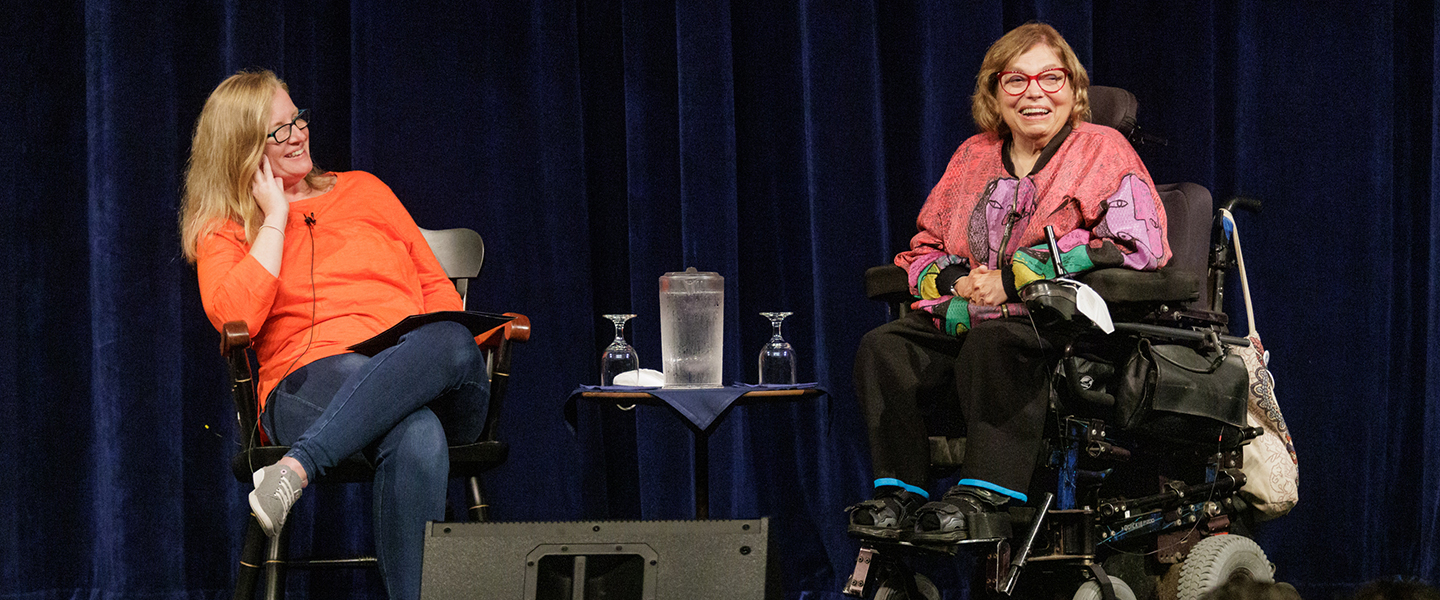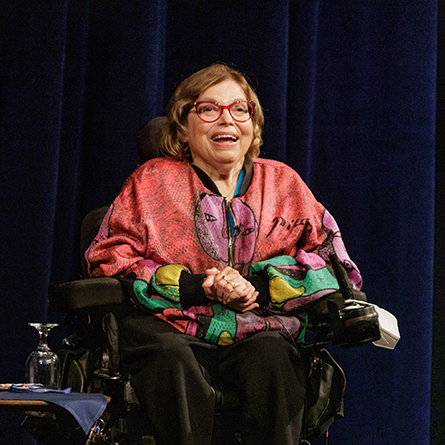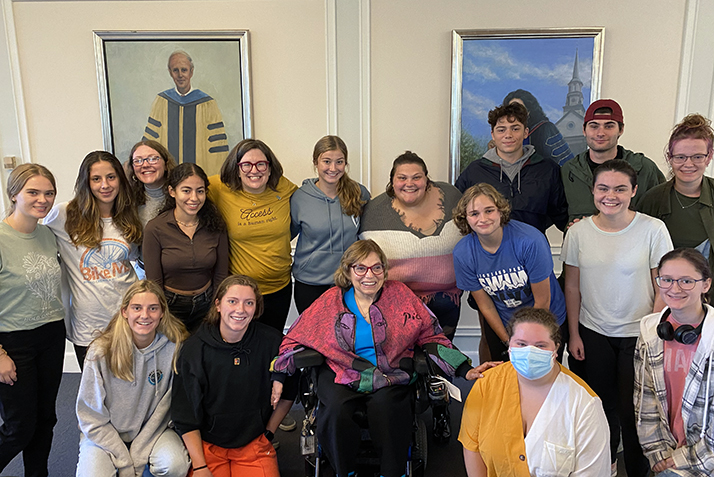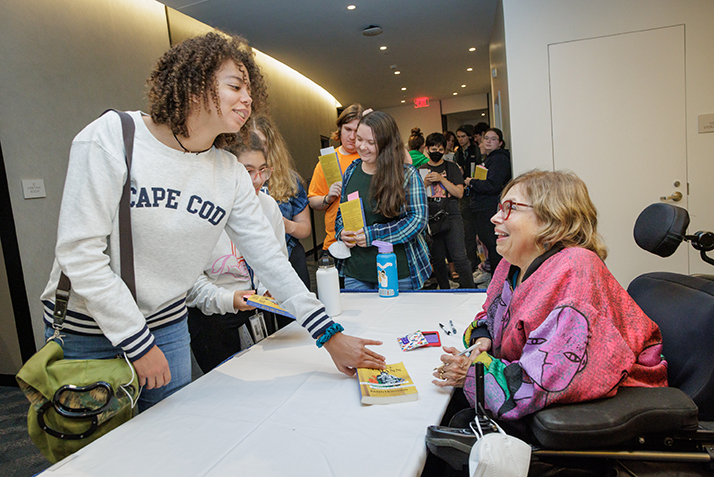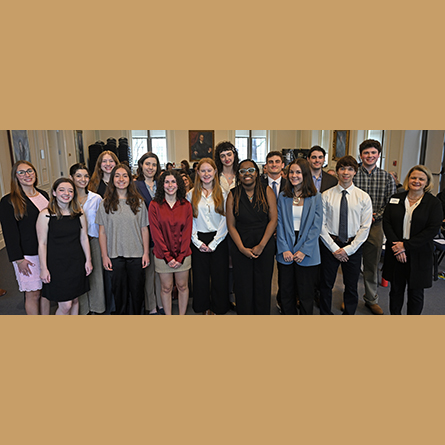
‘One Book One Region’ brings disability rights activist Judith Heumann to Conn
Paralyzed by polio when she was 18 months old, disability rights activist Judith Heumann never wished she didn’t have a disability.
“My life has been as a disabled person. I’ve never really wanted to think about my life as being anything but who I am,” Heumann told more than 800 students, faculty, staff and greater New London residents at this year’s One Book One Region signature event at Connecticut College on Thursday.
Instead, she focused on what she could change.
“For me, it’s about what do we need to be changing in society? Why has society been constructed in such a way as to negate the contributions of people who have various forms of disabilities? I’ve always felt it’s important to look at the changes that need to be made and that can be made,” she said.
“It’s about asking what we need to do to ensure that people are included and not setting something up where our big wish and hope is ‘cure me.’”
Heumann’s memoir, Being Heumann: An Unrepentant Memoir of a Disability Rights Activist, was the 2022 selection for One Book One Region, in which first-year Conn students do a shared summer reading with faculty, staff, advisers and hundreds of community members from southeastern Connecticut.
The book offers a firsthand account of the disability rights movement of the 1960s, 1970s and 1980s. As a child, Heumann fought to attend grade school after being described as a “fire hazard,” and later won a lawsuit against the New York City school system for denying her a teacher’s license because of her paralysis, which set a precedent that fundamentally improved rights for disabled people.
A lifelong activist, Heumann has been instrumental in the development and implementation of key legislation, such as Section 504, the Individuals with Disabilities Education Act; the Americans with Disabilities Act; the Rehabilitation Act; and the United Nations Convention on the Rights of Persons with Disabilities. She has received numerous awards and was the first recipient of the Henry B. Betts Award for her efforts to significantly improve the quality of life for people with disabilities.
In her introductory remarks, Dean of the Faculty Danielle Egan said Heumann has devoted her life to creating wider circles of understanding by fighting for the civil rights of disabled people and for conditions in which all people can thrive.
Being Heumann, Egan said, “tells the whole story: a story of injustices, of many acts of resistance and many acts of love, and ultimately of the milestone victories of the disability rights movement she helped to catalyze. But what is perhaps most memorable about the book is the inspiring lesson it offers all of us on living—on being present, open, curious and alive to one another. And on seeing what is possible when we recognize each other and enable each other to be fully human.”
The event, which marked the 20th anniversary of One Book One Region of Eastern Connecticut, featured a wide-ranging discussion between Heumann and Associate Professor of Sociology Jennifer Rudolph, a specialist in Latin American studies and disability studies. This semester, Rudolph is teaching a course on “Disability and Society,” and in June she kicked off the 2022 One Book One Region program with a compelling talk about her own work in field of disability justice.
Earlier Thursday, Heumann met with Rudolph’s class, talked with Conn students with disabilities and answered questions from students in Professor Alison Wetmur’s “Disability Justice” first-year seminar.
Maeve Bettencourt ’26 said meeting Heumann gave her further insight into the issues she and her classmates have been studying in Wetmur’s class.
“Her answers were really thoughtful, and it just really drilled home the point that while we have come a long way, there is still so much work to do,” Bettencourt said.
Heumann said the key to progress is collaboration.
“It’s not one person that makes change—the issues we need to deal with go beyond one person. It’s about the ability of people to come together and identify the areas where they want change, how they want that change to happen, and who they can be working with to enable that change to occur as quickly as possible,” she said.
“We need to all be thinking about what we need to do within our communities to make changes, so that we can feel with greater confidence that people are not being left behind.”
